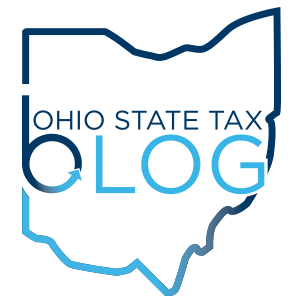Ohio Sales & Use Tax: Resale exemption denied where lease amongst related parties lacked a substantive business purpose.
 Businesses commonly use what is referred to as a “dry lease” to obtain use of a corporate aircraft for several reasons. One benefit of these arrangements is the lessor’s ability to claim the resale exemption on the aircraft’s purchase, with tax only being owed on lease payments received for use in a particular state. However, the Ohio Supreme Court recently held that when such an arrangement is not for profit or gain, the aircraft purchase is not entitled to the resale exemption. Pi In The Sky, LLC. V. Testa, 2018-Ohio-4812. Accordingly, businesses must be prepared to establish a valid business purpose for the aircraft, and substance of the lease, to claim the resale exemption in these situations.
Businesses commonly use what is referred to as a “dry lease” to obtain use of a corporate aircraft for several reasons. One benefit of these arrangements is the lessor’s ability to claim the resale exemption on the aircraft’s purchase, with tax only being owed on lease payments received for use in a particular state. However, the Ohio Supreme Court recently held that when such an arrangement is not for profit or gain, the aircraft purchase is not entitled to the resale exemption. Pi In The Sky, LLC. V. Testa, 2018-Ohio-4812. Accordingly, businesses must be prepared to establish a valid business purpose for the aircraft, and substance of the lease, to claim the resale exemption in these situations.
In this case, the taxpayer, Pi In The Sky, a single-member LLC (“SMLLC”), purchased an airplane for lease to its sole corporate member, Mitchell’s Salon and Day Spa (Mitchell’s). The airplane purchase was financed by a personal loan from Mitchell’s president, Deborah Schmidt, and guaranteed by the taxpayer. Pi In the Sky then leased the aircraft to Mitchell’s. Although such a lease would normally qualify for the resale exemption, the Court upheld the BTA’s affirmance of the Tax Commissioner’s conclusion that the lease was a sham and, therefore, Pi In the Sky was not engaged in a business enterprise.
Purchases made for the purpose of reselling the item in the same form are exempt from Ohio sales and use tax as long as the purchaser is “engaged in business.” That is, the taxpayer claiming the resale exemption must show that it purchased and resold the item “with the object of gain, benefit, or advantage.” See R.C. 5739.01(E); R.C. 5703.56(A). In this case, the following factors supported that Pi In the Sky was not engaged in business and its lease to Mitchell’s lacked substance
- The lease’s rental rate was far under FMV and Mitchell’s was responsible for all operating, maintenance, and storage costs related to the aircraft.
- Mitchell’s lacked a business purpose for the airplane as its hair salons and spas were located in Cincinnati.
- Deborah Schmidt executed the lease on behalf of both lessor and lessee.
- The airplane was not advertised, marketed, or leased any other lessees.
- The airplane was financed through a personal loan obtained by the owner / corporate officer.
- Flight logs indicated a lack of business-related destinations or passengers – in fact, many flights appeared to be to or from Ms. Schmidt’s lake house in northern Michigan.
While the Supreme Court focused on whether Pi In the Sky was “engaged in business” (i.e., operating with the purpose of earning a profit or gain), the Tax Commissioner had invoked the rarely used sham transaction doctrine to disregard the airplane lease. R.C. 5703.56(A)(1).
Although this case presented particularly unfavorable facts, compounded by the taxpayer waiving its right to present evidence to refute these facts at a hearing before the BTA, it serves as a cautionary tale that the form of transactions may be disregarded when lacking a substantive business purpose.
If you have any questions or concerns about the resale exemption or structuring transactions to minimize taxation, please contact us.
